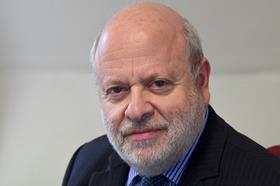Since so many solicitors complain about our regulatory structure, it is worth looking at how lawyers in other jurisdictions are regulated, and whether another system may be better.

In the USA, lawyers are by and large regulated by their state Supreme Courts. In the past, that has often seemed to be a calmer, surer method, witnessed by the fact that contentious changes like alternative business structures have been much slower to take hold in the USA, and are only now coming to the fore, often after preliminary experimentation in regulatory sandboxes.
But a decision last week in the Florida Supreme Court is a wake-up call to the thought that court-based lawyer regulation may be less volatile or political.
Judicial appointments to the Florida Supreme Court used to operate through the unadulterated US theory of popular election. But that was changed in the mid-1970s to a system whereby the governor appoints Supreme Court judges from a list provided by a nominating commission. Once appointed, the judges serve for at least a year, and then have to face a yes-no retention vote during the next general election. This is a milder, more merit-based system than the old one. A number of other US states also follow this method. All Florida’s current Supreme Court judges have been appointed by a Republican governor.
The decision made by its Supreme Court last week was a regulatory decision in relation to lawyers’ continuing legal education (CLE), focusing on a single point in the state bar’s CLE rules.
The point in question derived from the American Bar Association’s (ABA) own CLE policies. The ABA is not itself a regulator, but publishes model rules and runs its own training programmes. It adopted a ‘Diversity & Inclusion CLE Policy’ in 2016, which set numbers for diversity on expert panels providing CLE. So, for instance, individual programmes with three or four panel participants, including the moderator, should have at least 1 diverse member, and so on proportionately as the panel size increases. The ABA policy states that it will not sponsor, co-sponsor, or seek CLE accreditation for any programme which fails to comply with this diversity rule, unless an exception or appeal is granted.
The ABA had previously had a voluntary policy in relation to panel diversity, but this had not worked. (Anyone with experience of putting on conference sessions will have faced similar challenges.)
The Business Law Section of the Florida State Bar adopted a rule along the ABA lines. Diversity was defined as arising from a person’s membership in ‘groups based upon race, ethnicity, gender, sexual orientation, gender identity, disability and multiculturalism.’ It was this CLE panel rule which the Florida Supreme Court struck down.
There was no case brought before the court which required a decision, so prompting the court to act. The decision was made of its own motion, and without prior consultation. When the court first announced its decision back in April, it sought comments within 75 days, because the amendments had not previously been out for consultation.
With a handful of exceptions, the forty-plus comments that the court then received opposed its decision, coming from attorneys and law firms, voluntary bar associations, law school deans, and legal organisations, including the ABA itself. But the court confirmed its original decision last week, under its general authority to set the rules which govern the Florida Bar.
The decision rested on the meaning of the word ‘quota’. The court held that the rule amounted to a quota. It is only from the one dissenting judicial opinion that it is possible to see what opponents said in a little more detail. The ABA and the Business Law Section of the State Bar denied it was a quota, because it was not mandatory (exceptions and appeals are written into the policy), and there were no places set aside for particular groups.
That does not mean that the ABA and others with similar rules cannot put on CLE programmes in Florida in the future, nor that local lawyers cannot attend them. But any lawyer attending such a programme will not be given CLE credits for it.
There was also considerable opposition to the court decision because of it being an own-motion change without full prior consultation, particularly on a topic like diversity. The dissenting judge noted that such unilateral action was not isolated, but rather part of a recent pattern of drastic changes.
This decision raises many contentious issues. But to return to where I started: it reflects on the regulatory structure, which allows politically appointed judges, retained in a general election, to interfere off their own bat with particular lawyers’ rules in a way which plays well in the endless culture wars.
The likelihood of such regulatory behaviour under our own system, fortunately, seems remote.
Jonathan Goldsmith is Law Society Council member for EU and international matters and a former secretary general of the Council of Bars and Law Societies of Europe. All views expressed are personal and are not made in his capacity as a Law Society Council member, nor on behalf of the Law Society































6 Readers' comments